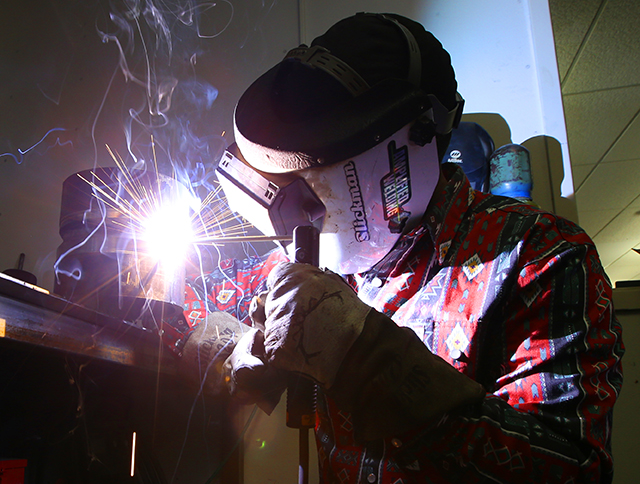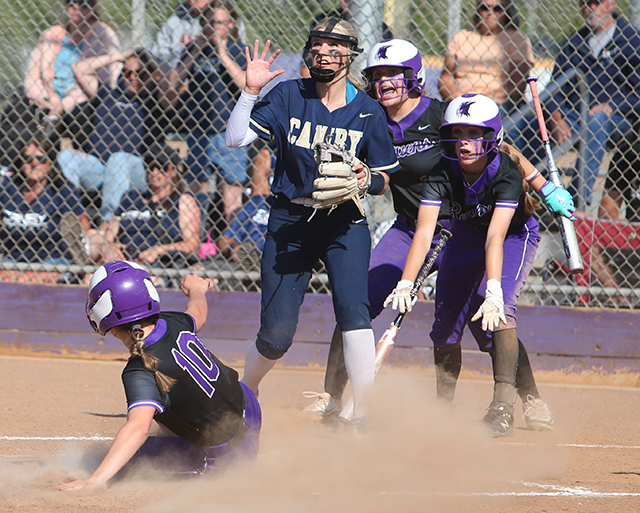Column: Right words and word guys
Published 1:15 am Thursday, May 23, 2024

- Steve Trotter
I’m a word guy. My friends amend that to say I’m a weird guy, too. That’s OK. Normal is highly overrated and leaning a bit into the weird side is nothing to sniff at.
Every once in a while I hit critical mass. Every once in a while the abuse of the English language becomes so radioactive I explode. The language doesn’t explode. Languages are quite tolerant of most everything.
And that, right there, is part of the radioactivity. Language doesn’t speak up. It doesn’t complain when we make a verb out of a noun. Gift, a perfectly good noun, is now a verb: “She gifted me the gold-plated Rolls Royce.”
What happened to gave? “She gave me…”
My friends nudge each other and glance over at me. “Look out! He’s sliding into the Weird Zone.”
Have you seen the way “unique” is being messed with? It means, of course, one-of-a-kind. Every human, even identical twins, is unique.
“Unique” takes no qualifiers. Something cannot be “very unique” or “more unique.” It’s either unique or it isn’t. That’s it. End of story.
If I got a nickel for every qualifier of unique in the nation’s print media I could afford a gold-plated Rolls Royce.
More glances and nudges. A few friends, knowing how I get, are looking at their phones, hoping there’s an appointment they must get to STAT.
“How ‘bout ‘it’s’?” I ask them. “Did you know ‘it’s’, with the apostrophe, always means ‘it is’?”
They nod. They’ve heard my weirdness before. “The possessive of ‘it’ is ‘its,’’ they say, in unison. “No apostrophe.”
See? I have smart friends, although the number keeps shrinking. I know the smaller numbers cannot be a reflection on my wordness or my weirdness. Of course not.
Stick around. It gets worse.
Language is our primary tool for communicating. Words are part of — perhaps a major part of — such communication. Of course, face to face, our body also speaks and the folks that study this stuff agree that while our words may say one thing, our “body language” is the language to trust.
The communication problem isn’t just grammar or spelling, though improving both would enhance understanding between us all.
Benjamin Dreyer, a former managing and copy editor at Random House says this: “The disconnect was just another example of what I have long thought of as Redefinition by Misapprehended Inference. It’s the means by which numerous people repeatedly hear or see a word used in a perfectly standard context but then misunderstand, a little or a lot, what was in fact meant, and then carry that misapprehension forward, contributing to its widespread use.”
We hear something from someone. The something is appropriate and in context. But then we attach a different meaning to that word or phrase. Our meaning becomes dominant and, the next time we read or hear that phrase or word, we interpret and understand it by the meaning we have assigned, not the meaning the original term or phrase carried.
In the age of social media, where lies spread faster than a forest fire in tinder-dry Central Oregon, such redefining can be destructive. It’s destructive to our own perceptions and our own thinking. It means when we use the word or phrase we’re not getting right, we add to poor communication.
“Getting it right” means getting it clear. Getting it said without ambiguity, with evidence at-hand, and a willingness to be corrected. The right word helps. Correct grammar does, too. Not defining everything according to the unholy trinity of Me, Myself and I, will help even more.
I do love me some words. I love them best when they serve us well, enabling understanding and building friendship.





